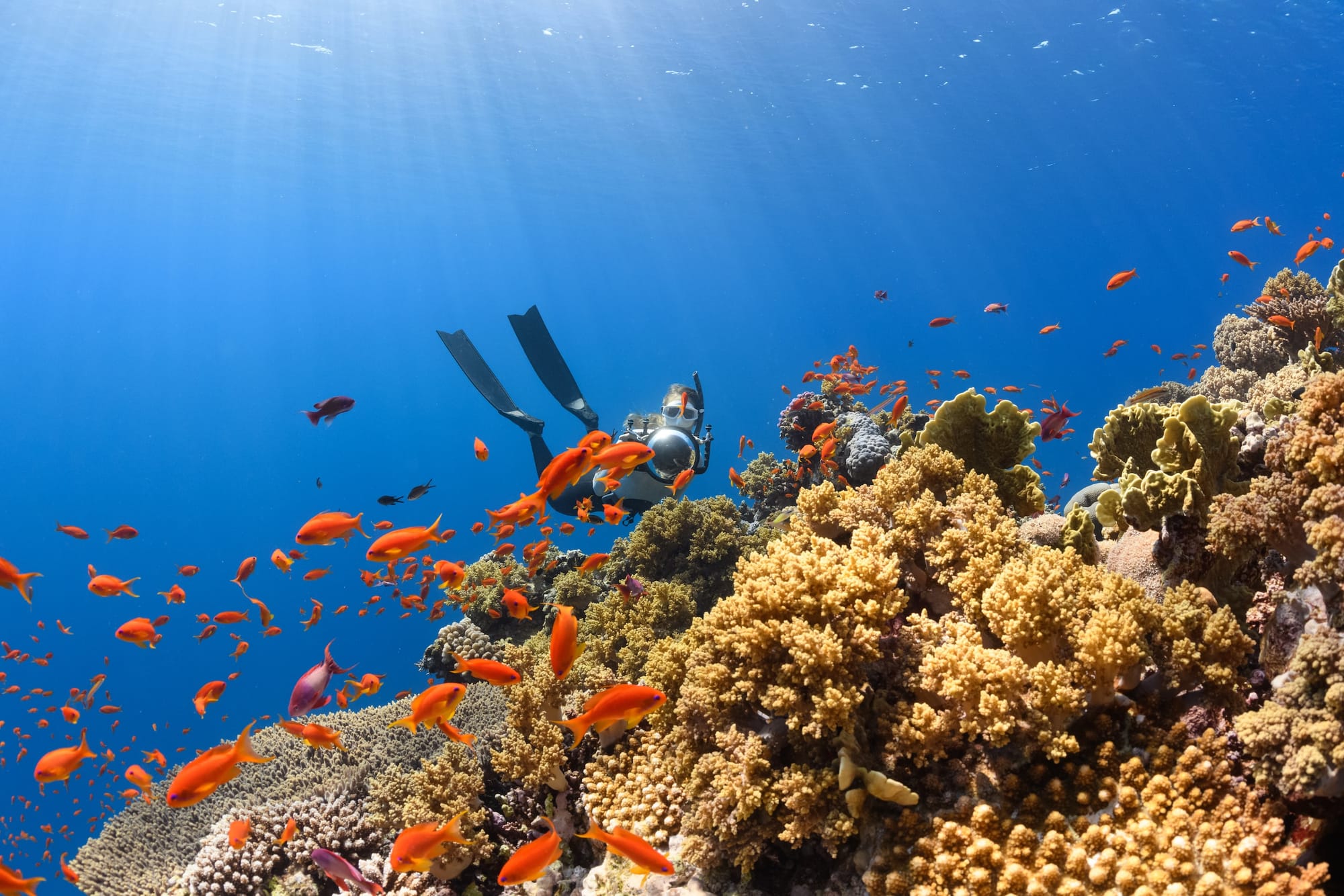Exploring Abu Galawa Coral Reefs in Yanbu

The exploration of Abu Galawa Coral Reefs in Yanbu represents a significant step towards understanding the biodiversity and ecological significance of coral reefs in the Red Sea. This article aims to share the findings from a comprehensive research study conducted on the Abu Galawa Coral Reefs, detailing the methodology, results, and discussion of the investigation. The coral reefs of the Red Sea are amongst the most resilient and diverse ecosystems globally, offering unique insights into coral biodiversity and the impacts of environmental changes.
Introduction
The Red Sea is a unique marine environment known for its high salinity, temperature stability, and remarkable coral reef systems. Among these, the Abu Galawa Coral Reefs in Yanbu have attracted scientific interest due to their unique structure and biodiversity. This study aimed to document the species diversity, assess the health of the coral reefs, and identify potential threats to these marine ecosystems. Understanding the ecological dynamics of Abu Galawa is essential for developing effective conservation strategies to preserve these natural wonders for future generations.
Methodology
The research employed a multi-faceted approach to exploring the Abu Galawa Coral Reefs. Divers conducted underwater surveys using SCUBA gear, enabling the direct observation and documentation of coral species, their health status, and any signs of bleaching or damage. In addition, water samples were collected for analysis of salinity, temperature, and nutrient levels to assess environmental conditions impacting the reefs. Photographic surveys were also utilized to capture the spatial distribution and density of coral populations. Data collection was carried out over a six-month period to account for seasonal variations in environmental conditions and coral activity.
Results
The survey identified a rich biodiversity within the Abu Galawa Coral Reefs, including several species of hard and soft corals, fishes, and other marine life. Notably, the reefs exhibited a high degree of coral cover and low levels of bleaching, suggesting a healthy ecosystem. The analysis of water quality indicators revealed that the reefs are in an area of the Red Sea with optimal conditions for coral health, including stable temperature and salinity levels. However, the research also identified potential threats to the ecosystem, including physical damage from fishing activities and anchor drops, along with the presence of non-indigenous species competing with native coral species.
Discussion
The findings underscore the ecological significance of Abu Galawa Coral Reefs and highlight the critical need for their preservation. The relatively low level of coral bleaching compared to other regions indicates the resilience of the Red Sea coral ecosystems, possibly linked to their adaptation to high salinity and temperature conditions. The study emphasizes the importance of sustainable management and conservation strategies, including the establishment of marine protected areas to guard against physical damage and the regulation of fishing activities to prevent overexploitation of resources.
In addition, the presence of non-indigenous species points to the need for monitoring and management efforts to prevent the disruption of the native marine biodiversity. Public education and engagement are also crucial in raising awareness about the value of coral reefs and the challenges they face, fostering a community-based approach to their conservation.
In conclusion, the research on Abu Galawa Coral Reefs offers vital insights into the health and diversity of coral ecosystems in the Red Sea. These findings contribute to the global understanding of coral reef ecology, adding to the body of knowledge required to protect these ecosystems in the face of changing environmental conditions. The study highlights the importance of continued research, concerted conservation efforts, and community engagement in preserving the unique biodiversity and ecological functions of coral reefs.
The exploration of the Abu Galawa Coral Reefs serves as a reminder of the beauty and ecological importance of these marine ecosystems. As the global community faces the challenges of climate change and environmental degradation, the preservation of coral reefs stands as a testament to the resilience of nature and the critical role of scientific research in guiding conservation efforts. It is hoped that the findings from this study will inspire further exploration and protection of coral reefs around the world, ensuring their survival for future generations to appreciate and enjoy.